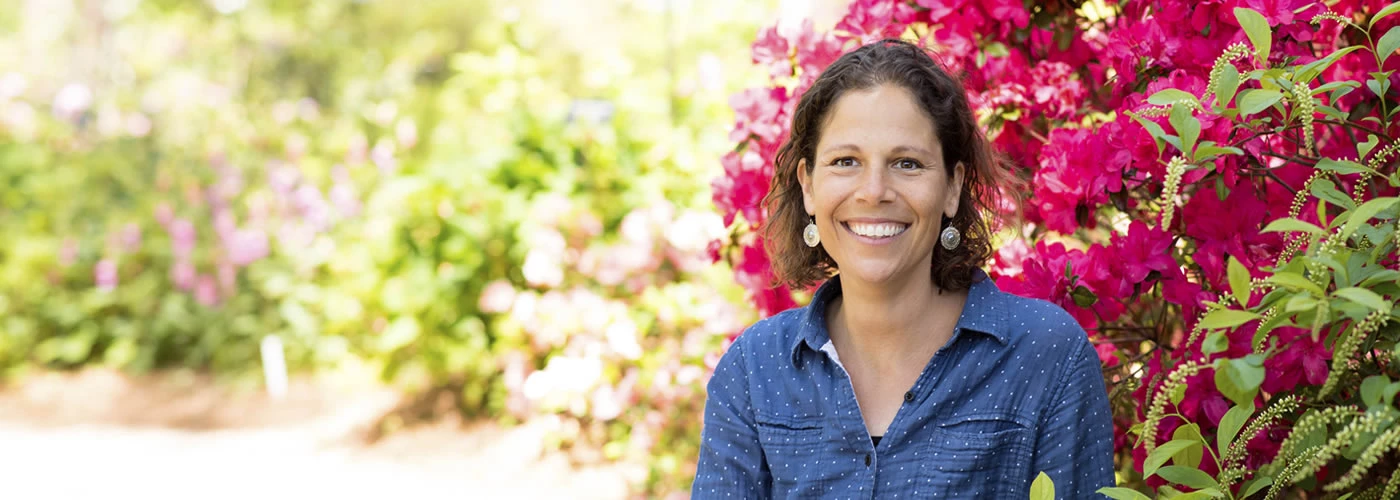Katerina Gmitter is a YSC State Leader in North Carolina and leads a F2F group in Chapel Hill. She is a 9-year TNBC breast cancer survivor and a BRCA carrier. Her mother passed away from metastatic breast cancer when she was 20 years old and her sister is also a young survivor. Katerina started her business EcoThriver www.ecothriver.com out of the desire to empower others to make greener and healthier choices. Recently Katerina also started a nonprofit Healing Pines Respite that provides respites for women with cancer so they can focus on their own self-care. She was born and raised in New Jersey and relocated to North Carolina 8 years ago after her diagnosis.
How green and clean is your cleaning routine? Did you know that conventional cleaners can introduce hundreds of chemicals into your home? Did you know that there is no FDA approval needed on many of the chemicals in cleaning products? As a result, one ingredient, fragrance, or perfume may include hundreds of chemical compounds.
This January, I celebrated 9 years of cancer survivorship and continue to be grateful for the YSC Community! I was diagnosed at age 32 with Triple Negative Breast Cancer as a young mom to a 4-month-old and 2-year-old. When our family first decided to go “eco” and “nontoxic,” I was beyond overwhelmed. I had just finished treatment - including a double mastectomy and six months of chemotherapy. I met with a nutritionist (helpful) and a cancer survivorship “guru” (not helpful) who literally was on my living room floor simulating how to give myself a coffee enema. That is when I delved into my own research on how to eliminate household toxins, live a cleaner, greener life, and raise healthier kids.
Why Does Green Cleaning Matter?
Many cleaning supplies and household products can cause irritation of skin, eyes, or throat, headaches, and other health problems. Additionally, products often contain volatile organic compounds that are harmful when inhaled. This includes air fresheners, fabric softeners, scented laundry detergent, ammonia and bleach (found in many cleaners including dishwashing detergents). Did you know there are ingredients used in the U.S. that are banned in European countries due to their toxicity?
“The past nine years of survivorship have brought out the best and worst of life. I have learned that healing is not linear and that small changes can have a large impact. Most importantly, I have learned that empowerment feels way better than fear."
By going green with your cleaning routine, you are improving your indoor air quality, your health, your lungs and your energy. Toxins from conventional cleaners (like formaldehyde) get into the air, sit on surfaces (including glassware and dishes) and are absorbed through your skin.
Deciding what to choose was so overwhelming that cleaning was actually one of the later healthy changes we made. I grew up with conventional store-bought cleaners and their smell told my brain the house was clean. My brain used to recognize the smell of bleach, commercial window cleaners and floor waxes as “clean.” But now my brain knows that clean doesn’t have a scent. And if it does, it is a lingering vinegar scent or the scent of fresh lemons. The good news is that swapping out cleaners is easy to do!
How Do You Start Greening Your Cleaners?
- Read ingredients. If ingredients aren’t listed, do not buy it. Products claim to be safe and natural when they aren’t.
- Cleaners fall into three categories: worst, better, best. EWG’s Guide to Healthy Cleaning can help you in your research for better choices.
- Avoid fragrance in all of your cleaning products. Add some lemon essential oil, lavender, or grapefruit if you really want a smell to your products.
- You can make your own cleaners! I would have started sooner had I known how easy (and inexpensive) it was to make my own products!
My Green Cleaning Arsenal includes white distilled vinegar, peroxide, washing soda, and castile soap. I use vinegar and water to clean my floors, counters, and more. In addition, I make a fantastic dishwasher detergent and laundry detergent recipe! And I have started teaching eco-cleaning classes as well. Empowering other women to live a cleaner and greener life is my passion.
Learn More
In March I had the opportunity to attend the YSC Summit in Austin Texas where I connected with many women in the YSC community. I first attended the YSC conference when I was 1 year out from chemotherapy. This year, it was empowering and energizing to attend as a State Leader, F2F Leader, survivor, sister, and friend! I made myself available to answer any questions about going nontoxic and I had the opportunity to share my passion for healthier choices.
The past nine years of survivorship have brought out the best and worst of life. I have learned that healing is not linear and that small changes can have a large impact. Most importantly, I have learned that empowerment feels way better than fear. Here's to making at least one small change for your health that may lead to more.
Happy clean and green cleaning!
Resources:
https://www.cbsnews.com/pictures/ewgs-hall-of-shame-of-toxic-household-cleaners/
https://www.lung.org/our-initiatives/healthy-air/indoor/indoor-air-pollutants/cleaning-supplies-household-chem.html
https://www.sciencenews.org/article/household-products-make-surprisingly-large-contributions-air-pollution
 Katerina Gmitter is a YSC State Leader in North Carolina and leads a F2F group in Chapel Hill. She is a 9-year TNBC breast cancer survivor and a BRCA carrier. Her mother passed away from metastatic breast cancer when she was 20 years old and her sister is also a young survivor. Katerina started her business EcoThriver www.ecothriver.com out of the desire to empower others to make greener and healthier choices. Recently Katerina also started a nonprofit Healing Pines Respite that provides respites for women with cancer so they can focus on their own self-care. She was born and raised in New Jersey and relocated to North Carolina 8 years ago after her diagnosis.
Katerina Gmitter is a YSC State Leader in North Carolina and leads a F2F group in Chapel Hill. She is a 9-year TNBC breast cancer survivor and a BRCA carrier. Her mother passed away from metastatic breast cancer when she was 20 years old and her sister is also a young survivor. Katerina started her business EcoThriver www.ecothriver.com out of the desire to empower others to make greener and healthier choices. Recently Katerina also started a nonprofit Healing Pines Respite that provides respites for women with cancer so they can focus on their own self-care. She was born and raised in New Jersey and relocated to North Carolina 8 years ago after her diagnosis.




